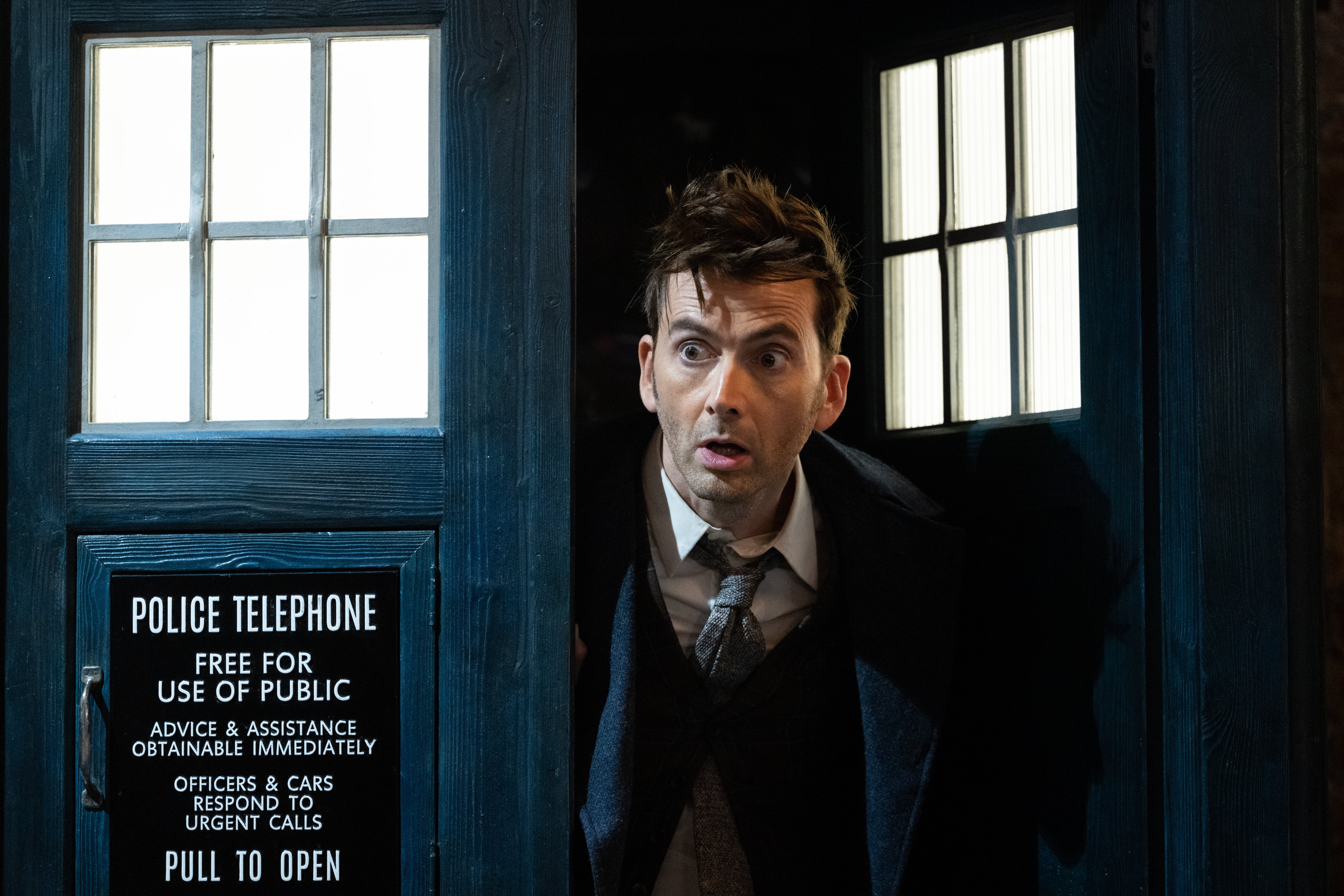Can Russell T Davies fix what Chris Chibnall broke in Doctor Who?
Jodie Whittaker’s stint as the Doctor was dogged by underwhelming scripts and tanking audience figures. Isobel Lewis asks if the return of Russell T Davies can bring the show back to its glory years


Your support helps us to tell the story
From reproductive rights to climate change to Big Tech, The Independent is on the ground when the story is developing. Whether it's investigating the financials of Elon Musk's pro-Trump PAC or producing our latest documentary, 'The A Word', which shines a light on the American women fighting for reproductive rights, we know how important it is to parse out the facts from the messaging.
At such a critical moment in US history, we need reporters on the ground. Your donation allows us to keep sending journalists to speak to both sides of the story.
The Independent is trusted by Americans across the entire political spectrum. And unlike many other quality news outlets, we choose not to lock Americans out of our reporting and analysis with paywalls. We believe quality journalism should be available to everyone, paid for by those who can afford it.
Your support makes all the difference.Will Russell T Davies be the saviour of Doctor Who? With Jodie Whittaker’s stint as the two-hearted Time Lord having come to a close, the BBC is surely hoping so. Her casting came with so much promise, but Whittaker leaves the show with dwindling viewing figures, lost fans and the overarching sense that showrunner Chris Chibnall really did her dirty. So why not bring back Davies, the man responsible for reviving the show in 2005, at a point when Doctor Who desperately needs a reset? Already, it looks like the plan might be working. Davies marked his return during Sunday’s episode with a major surprise. David Tennant would be returning as the Doctor for three episodes before Ncuti Gatwa takes the reins. For the first time in a long while, people are actually talking about the show again.
The more cynical among us may see Davies’ hiring as an attempt to cash in on nostalgia and recapture the show’s former magic. At the peak of the Davies/Tennant era in 2009, more than 10 million viewers were tuning in every week. In comparison, this year’s specials clawed together an average viewership of 2.62 million, with just 3.7 million watching Whittaker’s regeneration. But Davies isn’t a writer stuck in the past, as the international successes of his forward-thinking recent shows Years and Years and It’s A Sin have shown. His ideas are original and have continually started conversations, while his scripts are warm and inclusive without ever feeling preachy. In short, he’s exactly what the show needs right now.
That’s not to say it’s going to be an easy job. After all, the Doctor Who that Davies will inherit comes with a pretty bruised reputation. In 2017, there was excitement that Whittaker would pick up the sonic screwdriver from Peter Capaldi, with Broadchurch writer Chris Chibnall joining her as showrunner. But under Chibnall’s reign, Doctor Who swerved between being utterly forgettable and memorable for all the wrong reasons. Individual episodes were dragged down with exposition and clichés, while the broader story arcs were impossible to keep track of. In its worst moments, nearly 60 years of Doctor Who canon was trampled all over and if you hadn’t already given up on it, the last series titled “Flux” – a self-contained run of episodes both baffling and inconsequential – was sure to do it.
But perhaps the biggest crime of the Chibnall era was to dampen Whittaker’s shine. Her Doctor was overly serious and introspective, not given room to play in the way that her predecessors were. I went to a recent screening of the finale, and, in a cast Q&A, Whittaker giggled, dropped the odd F-bomb and exhibited a charm that had been notably missing from the show itself. When she spoke, I couldn’t keep my eyes off this effervescent actor, yet as the Doctor, I struggled to keep my eyes from glazing over.
What Davies can bring – at least for now – is a reset. It was disappointing not to see Whittaker regenerate into Gatwa, given the thrill his casting generated, but Tennant’s return feels necessary for Doctor Who. For a lot of viewers, he is the Doctor. In our nostalgia-heavy culture, an actor already loved by the public, combined with a writer we know gives good Who, should be a safe bet to win viewers’ hearts again.

Tennant will only appear in three episodes next year (his much-loved companion Donna Noble, played by Catherine Tate, is also coming back), but there’s clearly hope that a step back will allow the show to move forward. You can already see the impact. Social media is abuzz with Doctor Who chat, while friends have told me they plan to tune in again for the first time in a decade.
Because that’s the thing you can’t shake from Doctor Who: the inordinate amount of goodwill people have towards it. Parents who hid behind their sofas watching the show in the Sixties and Seventies passed it on to their kids in the Noughties, who now have the same desire to share it with the next generation. It’s a piece of British history; we feel the pain of Doctor Who being bad so strongly because we want it to be good. Please, for the sake of the Whovians, let it be good…



Join our commenting forum
Join thought-provoking conversations, follow other Independent readers and see their replies
Comments